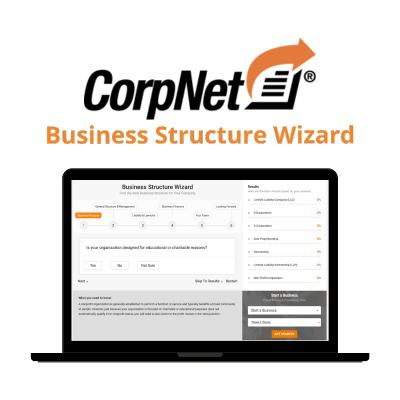If you have been considering starting an eCommerce business, you’re exploring an industry with a promising outlook. The last few years have forced many people to buy products online and this new way of shopping isn’t going away anytime soon.
In today’s article, we’ll review the primary eCommerce considerations you’ll need to think about and then we’ll walk through the general legal steps for how to start an eCommerce business.
Top Questions for Starting an Online Business
As you work through the issues that I’ve shared below, I encourage you to research the industry you’re interested in entering, the market (demographically and geographically), and the competition.
What Products Will You Sell in Your eCommerce Store?
Stating what may seem like the obvious, you will need to decide what you want to sell online if you wish to start an eCommerce business. The products you sell and the logistics of how you make and deliver them will be among the most critical factors influencing your ability to succeed.
Several questions to ask as you decide what products you will sell include:
- Are you interested in the product and believe in its benefits for buyers?
- Is there a need for your product?
- How much market opportunity exists?
- How much competition is out there?
- Are there legal restrictions associated with selling your product?
- Is the product a fad, or does it have staying power?
You’ll want to evaluate your idea carefully to ensure it is viable. With many existing eCommerce businesses (and brick-and-mortar stores) selling online—including some major players that have a stronghold in the market—you will need to be able to differentiate yourself. For example, if you’re going to sell dog collars (which means you’ll be competing with the likes of Chewy.com) you will have to figure out a way to demonstrate unique value.
How Will You Sell Your Products Online?
Two options to consider include:
- Set up a shop on an existing marketplace, such as Etsy or Amazon – Advantages include faster entry to the market, more exposure via an expansive network, and a solid back-end infrastructure. Disadvantages include seller and transactional fees, no control over branding, the clutter of other brands sharing your retail space.
- Set up your own eCommerce website – Advantages include control over marketing and branding, the ability to choose the software platform that’s optimal for your business, no selling fees to pay to a marketplace website, online store customization possibilities (the extent will depend on the eCommerce platform you choose). Disadvantages include higher upfront costs, ongoing website maintenance, and an initial lack of web traffic.
Learn More: Selling on Etsy, Starting an Amazon Business
If you decide to go the route of setting up your own eCommerce website, you’ll need to determine which eCommerce website software platform you will use for your online store.
Several popular eCommerce platforms you may want to explore include:
- Shopify
- BigCommerce
- WordPress’s WooCommerce
- Squarespace
- Square Online
- Ecwid
- Wix eCommerce
- Weebly
- 3dcart
- Volusion
- OpenCart
Considerations when comparing eCommerce platforms:
- Ease of setup and adding products
- Existing themes and templates
- Customization options
- Developer support and help guides
- Expandability and support for online growth
- SEO features
- Point of sale integration
- International shipping options
- Integration capabilities with social media and sales channels like Amazon, Walmart Marketplace, Google, Bing, or Faire
- Flexible payment methods to support the growing user demand of Apple Pay, Google Pay, Amazon Pay, and PayPal
- Support for gift cards
- Ease of use for returns and exchanges
- Support for sales tax calculations and reporting
- Support for bundles, upsells, and advanced product configurations
Where Will Your Product Inventory Come From?
Will you create or manufacture your own products, contract with a manufacturer to make your products, or resell another company’s products? Do you require software that can support integration to external inventory or a drop shipper?
The route you choose will affect your physical storage, equipment, and staffing needs, as well as the software you choose. And all of that will affect your inventory costs, overhead, pricing, and ultimate profitability.
How Will You Handle Order Fulfillment and Delivery?
What about order fulfillment? Will you have physical inventory at a warehouse that you manage, or will you pay another company to handle the fulfillment and dropship products for you?
Not sure what drop shipping means? Dropshipping is when you don’t store or handle shipping products yourself. Instead, your contract with a third-party to store your inventory and handle packaging and shipping customer orders.
If you fulfill orders and ship on your own, realize that, depending on where you’re sending your products, you may encounter unique restrictions or regulations. And if you ship internationally, you’ll need to worry about foreign carriers and additional paperwork for customs processing.
How Will You Provide Customer Service?
Customer service is essential for responding to questions about products and resolving billing, shipping, and product satisfaction issues.
Ways to field inquiries from and converse with customers include:
- Customer support phone number
- Customer support email address
- A contact form on your eCommerce website
- A live chat on your eCommerce website
- Social media
Keep in mind that we live in an age of instant gratification. Today’s consumers expect timely responses to their questions, concerns, and complaints on a 24/7 basis. Your diligence in providing exceptional and accessible customer service to your buyers will have an impact on your business’s reputation and competitive success.
Your best bet is to have a very robust policy guide with self-service support on your website. Having clear policies for shipping, product returns, and exchanges will help. Providing an FAQ page for shoppers will help them help themselves, which will save you both time and operational costs.
How Will You Market Your Business?
Getting the word out about your business and getting found in online search queries are essential for attracting customers and generating sales.
As an online business, your eCommerce website must perform well in search engines so that it gets found by people looking for the products you offer. Keyword research, on-page optimization, off-page optimization, social media, and paid online strategies such as pay per click, social media ads, or promoted posts will all affect your online visibility.
You may find you can set up and execute some marketing tactics on your own, but some may be beyond your expertise. Search engine optimization, in particular, is a complicated discipline that takes years to master. It may be to your advantage to invest in working with an SEO specialist rather than doing it all on your own.
What Funding Will You Need and Where Will You Get It?
Thinking through all of the considerations above will help you establish how much money you’ll need to start and maintain your eCommerce business.
If you don’t have enough money to cover your startup costs and initial ongoing expenses until your business becomes profitable enough on its own, how will you obtain the necessary funding?
Some possible sources of funds for your new online store include:
- Your own savings
- Friends and family
- Bank or credit union loans
- SBA loans
- Angel investors
- Venture capitalists
- Crowdfunding (e.g., Kickstarter)
Steps to Start an eCommerce Business
1. Write a Business Plan
Writing a business plan will help you capture all the details of what your business entails and how you will operate it. A business plan serves as a roadmap for your company, guiding you through the startup process and beyond. Note that over time—as your industry, competition, and goals change—you will want to update your business plan. Business plans are meant to be dynamic documents that evolve with your company.
Elements of a business plan may vary depending on the type of business. Sections often included are:
- Executive summary
- Company description
- Products and services
- Market analysis
- Competitive Analysis
- Marketing Plan
- Implementation strategy
- Operations
- Management
- Financial Projections
2. Choose a Business Name
A company name is one of the most critical marketing and branding assets for an eCommerce business. It may require a good deal of thought and feedback from others to find a name that will appropriately represent your brand and be memorable to consumers.
After zeroing in on the business name you want to use, you can check to make sure it’s not already in use in your state by conducting a corporate name search. If your company sells its products to customers in states besides the home state of your business, a trademark search will help you determine if your name is available throughout the United States.
In addition to securing a business name by registering it with the state and applying for a trademark, eCommerce entrepreneurs also need to secure the domain name and URL they wish to use for their online store.
3. Choose Your Business Entity Type
The business structure selected affects taxes, owners’ personal liability for business debts, and administrative complexity in keeping the company legally compliant.
Popular business entity types include:
Businesses that do not register with the state to form an LLC or Corporation will be considered a sole proprietorship (or partnership) by the IRS for income tax purposes. Income tax responsibility for business activities passes through to the owner’s individual tax return. This is generally true at the state tax level, as well. While operating as a sole proprietor or partnership offers simplicity, it puts business owners’ personal assets at risk. The business and its owners are considered the same legal and tax-paying entity. So, if anyone were to sue the company or the company can’t pay its debts, the court may seize the owners’ personal assets. The LLC and Corporation structures, on the other hand, create a legal shield (“corporate veil”) between the company and its owners, thus protecting owners’ personal assets from being taken to cover the business’s debts.
I also included S Corporation on the list. However, an S Corporation isn’t in itself a business structure, but rather a tax election that LLCs and corporations (if they meet IRS eligibility requirements) can choose. An S Corporation’s profit and loss pass through to the owners’ individual tax returns. The main advantage of S Corporation tax treatment for LLC owners is a lower self-employment tax burden. Social Security and Medicare taxes only get levied on the owners’ wages and salaries. Company profits paid to owners as distributions are not subject to those taxes. The advantage of corporations electing S Corporation treatment is it prevents double taxation. Double taxation happens when some profits are taxed at the corporate level (a corporation is its own tax-paying entity) and then at the individual level when they are given to shareholders as dividend income.
It’s important to understand the pros and cons of each business structure for your situation. Consulting an attorney and accountant can help you work through the advantages and disadvantages so that you make an informed decision. You can also use CorpNet’s Business Structure Wizard as a good starting point for your research.
4. Register Your Business
Business entities are formed at the state level, so the appropriate forms must be submitted to the state(s) where the company will operate from.
Here are the most common business formation documents you’ll encounter when forming a business for your online store:
- Sole proprietorships and partnerships require no formation paperwork. However, when using a name other than one that includes owners’ legal first and last names, a sole prop or partnership must file a DBA (Doing Business As), also called a Fictitious Name.
- Forming an LLC involves filing Articles of Organization.
- Forming a C Corporation involves filing Articles of Incorporation.
Other forms may also be needed depending on the state and the business structure (e.g., partnership agreement, operating agreement, bylaws, initial report, and other documentation). Businesses operating as an LLC or C Corporation must also assign a Registered Agent (CorpNet provides these services in all 50 states) to accept service of process on their behalf.
The costs and complexity to register a business vary from one state to the next. It’s helpful to check directly with the Secretary of State to ensure you’re aware of all requirements. States usually have their forms available online. Entrepreneurs can complete and submit them on their own or ask a third-party to handle the details for them. An online business document filing service like CorpNet can help you form an LLC or incorporate accurately and often more affordably than using most attorneys’ services.
5. Get an EIN
An Employer Identification Number (a.k.a. EIN or Federal Tax ID Number) is a nine-digit number issued by the IRS. It is used for tax and reporting purposes. Whether a business has employees or not, it will likely need to obtain an EIN. Most financial institutions require an EIN before they will open business accounts, and multi-member LLCs and Corporations must have an EIN. Also, partnerships must have EINs for completing distribution forms for the IRS.
6. Set Up Business Bank and Credit Accounts
Opening a business bank account and keeping business funds separate from owners’ personal funds is mission-critical. Not only does it make bookkeeping less confusing, but it also helps demonstrate to courts of law that the business is a separate legal and financial entity from its owners. That lessens owners’ liability risks in the event of the business getting sued or running into financial problems.
7. Obtain Business Licenses and Permits
eCommerce businesses, like brick-and-mortar companies, must obtain the required business licenses and permits to operate legally. The requirements vary depending on a company’s location. To find out what licenses and permits are needed, business owners should check with their city, county, and state.
Note that some shades of gray exist regarding state sales tax and eCommerce sales across state lines. Not only does a business’s physical location dictate state (and sometimes local) sales tax permit requirements, but an eCommerce business might also have to collect and remit sales tax in other states where its buyers are located.
8. Establish Vendor Relationships
Whether you create your own products and need to source materials or you buy products made by others, vendor contracts will be essential to your business. You’ll also need to establish agreements with companies or individuals that provide the professional services you’ll need to start and run your company (e.g., web development, SEO, and other professional services).
Consider consulting an attorney to help you create or review vendor and service provider contracts. Professional legal advice can help ensure terms and conditions are fair to both parties and there are no “gotchas” in the contract language.
9. Hire Employees
If you need staff to get your business off the ground, you’ll have a lot to think about when hiring.
As you seek and choose the right people for the job, keep the following HR and payroll considerations and tasks on your radar:
- Job descriptions for available positions
- Job application and interview questions
- W-4 form for federal tax withholding allowances
- Reporting of new hires to the state and federal governments
- I-9 form and E-Verify to verify an individual is eligible to work in the U.S.
- Payroll systems
- Registering for payroll taxes
- Ongoing payroll processing
- Deposit and payment of payroll taxes
- Ongoing record-keeping
There are many other factors involved when hiring and managing employees, so make sure you understand all the rules and laws. Consider consulting with a human resources professional, attorney, and accountant who can help you navigate this uncharted territory.
Learn more: What is Payroll?
10. Stay on Top of Ongoing Business Compliance
After you have your eCommerce business up and running, you will have some ongoing business compliance obligations to fulfill. Some compliance responsibilities are universal for all types of companies, and others will depend on the business structure, business location, industry, types of products, and other factors.
Examples of ongoing compliance formalities include:
- Reporting and paying taxes
- Renewing licenses and permits
- Filing annual reports
- Holding member or shareholder meetings
- Recording company changes via Articles of Amendment
- Maintain a registered agent
Failure to comply or being late with these or other responsibilities can result in fines, penalties, and worse. Research what you need to do and mark deadlines on your calendar so that you don’t fall behind. CorpNet’s free Compliance Portal is an excellent tool for tracking your upcoming business compliance requirements.
Start Off on the Right Foot
Contact my team at CorpNet today to assist you with all of your business formation filings. We’re here to ensure your paperwork is completed accurately, quickly, and affordably. As you launch and grow your company, we’ll be here every step of the way to help you with all of your business compliance needs.

Choosing a business structure can be a tough decision for the new business owner. CorpNet wants to make the process easier.
This free, online tool helps small business owners navigate the process of picking the right business structure for their new business.





